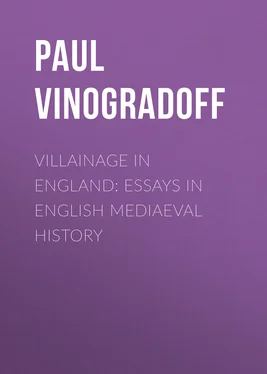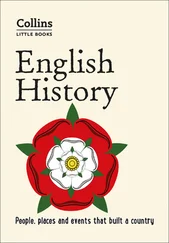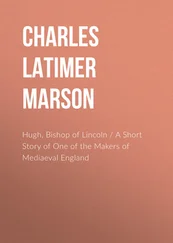Paul Vinogradoff - Villainage in England - Essays in English Mediaeval History
Здесь есть возможность читать онлайн «Paul Vinogradoff - Villainage in England - Essays in English Mediaeval History» — ознакомительный отрывок электронной книги совершенно бесплатно, а после прочтения отрывка купить полную версию. В некоторых случаях можно слушать аудио, скачать через торрент в формате fb2 и присутствует краткое содержание. Жанр: foreign_prose, Юриспруденция, История, foreign_edu, foreign_antique, на английском языке. Описание произведения, (предисловие) а так же отзывы посетителей доступны на портале библиотеки ЛибКат.
- Название:Villainage in England: Essays in English Mediaeval History
- Автор:
- Жанр:
- Год:неизвестен
- ISBN:нет данных
- Рейтинг книги:4 / 5. Голосов: 1
-
Избранное:Добавить в избранное
- Отзывы:
-
Ваша оценка:
- 80
- 1
- 2
- 3
- 4
- 5
Villainage in England: Essays in English Mediaeval History: краткое содержание, описание и аннотация
Предлагаем к чтению аннотацию, описание, краткое содержание или предисловие (зависит от того, что написал сам автор книги «Villainage in England: Essays in English Mediaeval History»). Если вы не нашли необходимую информацию о книге — напишите в комментариях, мы постараемся отыскать её.
Villainage in England: Essays in English Mediaeval History — читать онлайн ознакомительный отрывок
Ниже представлен текст книги, разбитый по страницам. Система сохранения места последней прочитанной страницы, позволяет с удобством читать онлайн бесплатно книгу «Villainage in England: Essays in English Mediaeval History», без необходимости каждый раз заново искать на чём Вы остановились. Поставьте закладку, и сможете в любой момент перейти на страницу, на которой закончили чтение.
Интервал:
Закладка:
The key to the whole medieval system and to the constitution emerging from it is to be found in feudalism. 'The constitution of feuds had its original from the military policy of the northern or Celtic nations, the Goths, the Huns, the Franks, the Vandals, and the Lombards, who poured themselves into all the regions of Europe, at the declension of the Roman Empire. It was brought by them from their own countries, and continued in their respective colonies as the most likely means to secure their new acquisitions, and to that end large districts or parcels of land were allotted by the conquering general to the superior officers of the army, and by them dealt out again in smaller parcels or allotments to the inferior officers and most deserving soldiers.' 'Scarce had these northern conquerors established themselves in their new dominions, when the wisdom of their constitutions, as well as their personal valour, alarmed all the princes of Europe. Wherefore most, if not all, of them thought it necessary to enter into the same or a similar plan of policy. And thus, in the compass of a very few years, the feudal constitution, or the doctrine of tenure, extended itself over all the western world.'
'But this feudal polity, which was thus by degrees established over all the Continent of Europe, seems not to have been received in this part of our island, at least not universally and as a part of our national constitution, till the reign of William the Norman. This introduction, however, of the feudal tenures into England by King William does not seem to have been effected immediately after the Conquest, nor by the mere arbitrary will and power of the Conqueror, but to have been gradually established by the Norman barons, and afterwards universally consented to by the great Council of the nation.' 'The new polity therefore seems not to have been imposed by the Conqueror, but nationally and freely adopted by the general assembly of the whole realm.' 'By thus consenting to the introduction of feudal tenures, our English ancestors probably meant no more than to put the kingdom in a state of defence by establishing a military system. But whatever their meaning was, the Norman interpreters … gave a very different construction to this proceeding, and thereupon took a handle to introduce, not only the rigorous doctrine which prevailed in the duchy of Normandy, but also such fruits and dependencies, such hardships and services, as were never known to other nations.' 'And from hence arises the inference, that the liberties of Englishmen are not (as some arbitrary writers would represent them) mere infringements of the king's prerogative, but a restoration of the ancient constitution, of which our ancestors had been defrauded by the art and finesse of the Norman lawyers, rather than deprived by the force of the Norman arms.'
The structure of the component parts is (for Blackstone) as ancient as the constitution of the whole. The English manor is of Saxon origin in all its essential characteristics, but the treatment of the people within the manor underwent a very notable change in consequence of the Norman invasion. In Saxon times the common people settled on folkland were immersed in complete slavery. Their condition was improved by the Conquest, because the Normans admitted them to the oath of fealty. And the improvement did not stop there: although the peasantry held their plots only by base tenure and at the lord's will, the lord allowed in most cases a hereditary possession. In this way out of the lord's will custom arose, and as custom is the soul or vital principle of common law, the Courts undertook in the end to protect the base tenure of the peasantry against the very lord whose will had created it. Such was the rise of the copyhold estate of modern times.
Blackstone's work is a compilation, and it would be out of the question to reduce its statements to anything like consistency. The rationalistic mode of thought which has left such a peculiar stamp on the eighteenth century, appears in all its glory in the laying out of the wise military polity of feudalism. But scarcely has our author had time to show the rapid progress of this plan all round Europe, when he starts on an entirely new tack, suggested by his wish to introduce a historical justification of Constitutional Monarchy. Feudal polity is of late introduction in England, and appears as a compact between sovereign and subjects; original freedom was not destroyed by this compact, and later infringements of contractual rights by kings ultimately led to a restoration and development of ancient liberties. In the parts of the treatise which concern Private Law the keynote is given throughout by that very Norman jurisprudence on which such severe condemnation is passed with regard to Public Law. The Conquest is thus made to appear alternately as a source of danger, struggle, and hardship from one point of view, and as the origin of steady improvement in social condition from another. In any case the aristocratic cast of English life is deduced from its most ancient origins, and all the rights of the lower orders are taken as the results of good-humoured concession on the part of the lords of the soil and of quiet encroachment against them.
Revolution in Historical literature. The Romantic school.
Statements and arguments in Blackstone's style could hold water only before that great crisis in history and historical literature by which the nineteenth century was ushered into the world. The French Revolution, and the reaction against it, laid open and put to the test the working of all the chief forces engaged in historical life. Government and social order, nationality and religion, economic conditions and modes of thought, were thrown into the furnace to be consumed or remoulded. Ideas and institutions which had towered over centuries went down together, and their fall not only brought home the transitory character of human arrangements, but also laid bare the groundwork of society, which however held good in spite of the convulsions on its surface. The generation that witnessed these storms was taught to frame its politics and to understand history in a new fashion 8 8 'Es war eine Zeit, in der wir Unerhörtes und Unglaubliches erlebten, eine Zeit, welche die Aufmerksamkeit auf viele vergessene und abgelebte Ordnungen durch deren Zusammensturz hinzog.' Niebuhr in the preface to the first volume of his Roman history, quoted by Wegele, Geschichte der deutschen Historiographie, 998.
. The disorderly scepticism of the eighteenth century was transformed by Niebuhr into a scientific method that paved the way by criticism to positive results. On the other hand, the Utopian doctrines of political rationalism were shattered by Savigny's teaching on the fundamental importance of tradition and the unconscious organic growth of nations. In his polemic with Thibaut, the founder of the historical school of law enters a mighty protest against wanton reform on the ground of a continuity of institutions not less real than the continuity of language, and his 'History of Roman Law during the Middle Ages' demonstrated that even such a convulsion as the Barbarian Invasion was not sufficient to sweep away the foundations of law and social order slowly formed in the past. Eichhorn's 'History of German Public and Private Law' gave detailed expression to an idea which occurs also in some of Savigny's minor works—to the idea, namely, that the German nations have had to run through their history with an engrained tendency in their character towards political dismemberment and social inequality. This rather crude attempt at generalising out some particular modern features and sanctioning them by the past is of historical interest, because it corresponds to the general problem propounded to history by the Romantic school: viz. to discover in the various manifestations of the life of a nation its permanent character and the leading ideas it is called to embody in history.
Интервал:
Закладка:
Похожие книги на «Villainage in England: Essays in English Mediaeval History»
Представляем Вашему вниманию похожие книги на «Villainage in England: Essays in English Mediaeval History» списком для выбора. Мы отобрали схожую по названию и смыслу литературу в надежде предоставить читателям больше вариантов отыскать новые, интересные, ещё непрочитанные произведения.
Обсуждение, отзывы о книге «Villainage in England: Essays in English Mediaeval History» и просто собственные мнения читателей. Оставьте ваши комментарии, напишите, что Вы думаете о произведении, его смысле или главных героях. Укажите что конкретно понравилось, а что нет, и почему Вы так считаете.












